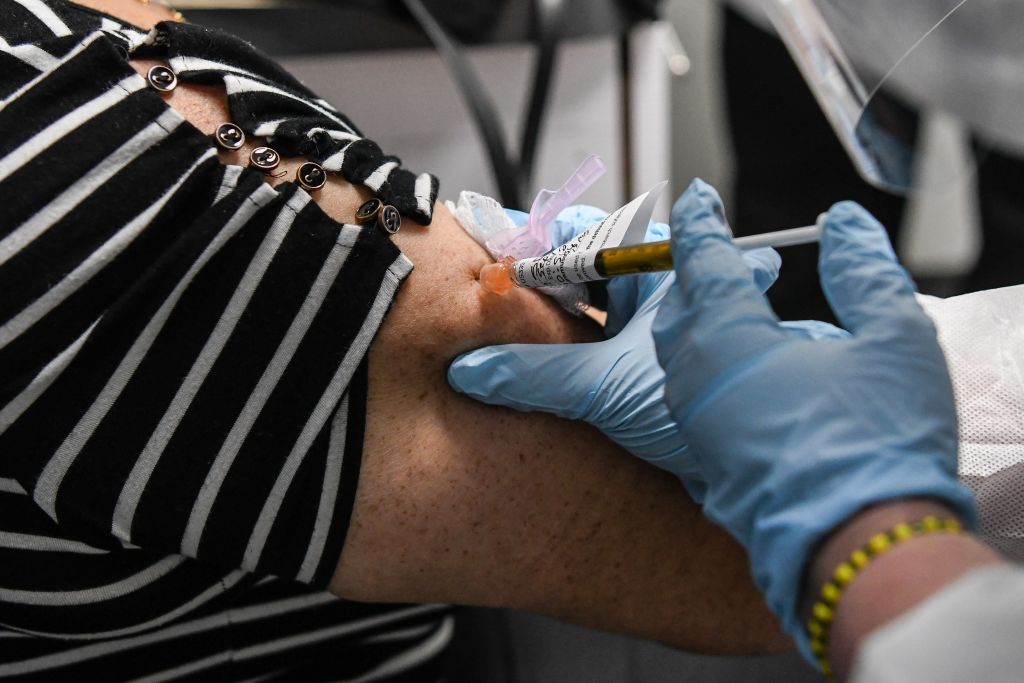Researchers, officials, and investors increasingly confident about a COVID-19 vaccine next January


A free daily email with the biggest news stories of the day – and the best features from TheWeek.com
You are now subscribed
Your newsletter sign-up was successful
Humans have never successfully developed a vaccine against a coronavirus, but expectations are rising that a COVID-19 vaccine will be ready for the public by the beginning of next year. At least three vaccines — developed by Moderna, Oxford-AstraZeneca, and China's CanSino — are in final Phase III testing, and Pfizer and its German partner BioNTech announced Friday they will also take their vaccine candidate with the fewest side effects into Phase III testing, with the goal of seeking regulatory review by October.
Expectations for a vaccine in a few months have also buoyed the stock market, even as current economic news remains dour.
"If data from Phase III trials shows the vaccines are effective and safe, the first vaccines could be approved at the beginning of the year, possibly with conditions attached," Klaus Cichutek, the head of Germany's Paul Ehrlich Institut, said this week. "Based on assurances from manufacturers, the first doses for people in Germany will be available at that time, in accordance with the priorities set by the Standing Committee on Vaccination."
The Week
Escape your echo chamber. Get the facts behind the news, plus analysis from multiple perspectives.

Sign up for The Week's Free Newsletters
From our morning news briefing to a weekly Good News Newsletter, get the best of The Week delivered directly to your inbox.
From our morning news briefing to a weekly Good News Newsletter, get the best of The Week delivered directly to your inbox.
The question of who will get first priority for a vaccine still have to be ironed out in different countries, but "I believe that it is realistic that we will know sometime in late 2020 whether some COVID-19 vaccines are safe, exactly how effective they are, and which ones should be used to vaccinate the U.S. population in 2021," William Petri, an infectious disease specialist at the University of Virginia, writes at The Conversation.
The U.S. has committed $8 billion "for the production of millions of doses of vaccines and supporting vaccine manufacturing at an industrial scale even before researchers have demonstrated vaccine efficacy and safety," Petri explains. "The advantage of this strategy is that once a vaccine is proven safe in phase III trials, a stockpile of it will already exist and it can be distributed immediately." The U.S. government is also in talks with vaccine distributors.
A free daily email with the biggest news stories of the day – and the best features from TheWeek.com
Peter has worked as a news and culture writer and editor at The Week since the site's launch in 2008. He covers politics, world affairs, religion and cultural currents. His journalism career began as a copy editor at a financial newswire and has included editorial positions at The New York Times Magazine, Facts on File, and Oregon State University.
